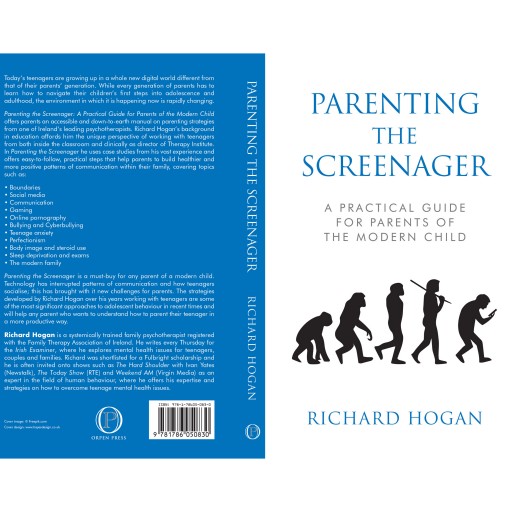One of the most important aspects of working with adolescents is understanding the context of their behaviour. All behaviour has a context and all behaviour is communication. Often parents bring their children to me in the hope the behaviour causing them concern will be fixed.
However, often what ends up being viewed is the ecology the child is living in and how that system is helping to maintain, or in certain incidences, how it causes the very behaviour the family wants to get rid of. I’m not speaking about blame here, but rather context.

We can never view our children as if they exist in a vacuum, like their behaviour just happened to arrive out of the blue.
Last year I had an incident with a student in one of the schools I work in that really struck me and illuminated what I’m speaking about. I started working with an adolescent who was 15 years old. He had found himself in a considerable amount of trouble because of the cheek he had started to give teachers.
I had been working with him for a couple of weeks when a teacher came to me very annoyed, explaining how the student had disrespected him in the class. The teacher wanted him on detention for the cheek he had given because it had really undermined his authority in front of the other students.
On my way to have a conversation with this student, another teacher stopped me and outlined a very negative interaction she had with the same student in the previous class, and she also wanted him to be put on detention.
Working in schools as a psychotherapist can be a very challenging experience, you have to navigate so many unique systems. And you can really feel the pressure of the school system to deal with behavioural issues in a punitive way, and of course at times students need to be punished for what they do.
But you also need to understand the context of why that behaviour is present in the first place before you can consider what sort of direction to take if you are truly seeking a desirable outcome for the child. Often the outcome suits the school or the family, not the child.
You can approach behaviour in many ways, and some are more effective than others. You can be authoritarian and annihilate the student for any bad behaviour without understanding the cause, and this can be the way the school system often deals with students who step out of line.
Because it is less messy and is a quick solution and schools are busy places. However, this is akin to putting a blanket on a fire, it might smother the flames for a while but eventually it is going to erupt again.
A more desirable approach to behaviour is to attempt to understand why the behaviour is present. In the case I’m describing here the boy was quite reticent when I first started to talk to him about his recent experiences in class.
It wasn’t until I brought his family into the room that his demeanour changed. It was through this externalising conversation that we got to the root of the problem.
I externalised the bad behaviour by calling it ‘cheekiness’ this removes the problem from the child and allows for a conversation to take place free from blame or judgment. Over the course of our conversation I also encountered his ‘cheekiness’; he was quite rude to me in the first moments of our conversation. It was obvious that he was trying to get a negative response from me. When I started to elicit information about his family the tone changed.
I asked him: ‘What would your dad say to this cheekiness?’ He replied in a very emotional way: ‘He wouldn’t say anything, he’s never there’. I followed that up with: ‘What would your cheekiness say to your dad?’ He thought about it for a moment and through tears said: ‘Come home, dad’.
He went on to delineate the pressure he felt under because his father was a taxi driver working many hours to afford the school he was going to. He felt that it was causing his parents stress and he wanted to get kicked out of the school so his father didn’t have to pay the fees and work so hard.
In this context, his behaviour is completely understandable. In fact, in this context, his behaviour was quite admirable.
He wanted to save his father the stress of working so hard and therefore save his family from collapse and he was doing this in the only way he knew how.
If I had simply put him on detention without attempting to understand why this behaviour was present I would be just another adult who misunderstood this young man and he would have felt further isolated and his behaviour would have escalated and maybe he would have been expelled and no one would have understood why.
In my work as a psychotherapist in schools I often observe how the joint systems of school and family join together to forge a powerful alliance and end up scapegoating the child. The problem firmly only exists within the child and there is no causality for the behaviour, ‘he is just a bad kid’. Nothing is more destructive for a young mind than this type of a narrative to be written.
When we label our children as ‘weak’, ‘bold’ or ‘stupid’ we are not predicting the future, we are writing it. We must always endeavour to view the context of our children’s behaviour; that way we can truly see the motives behind any action or reaction.


